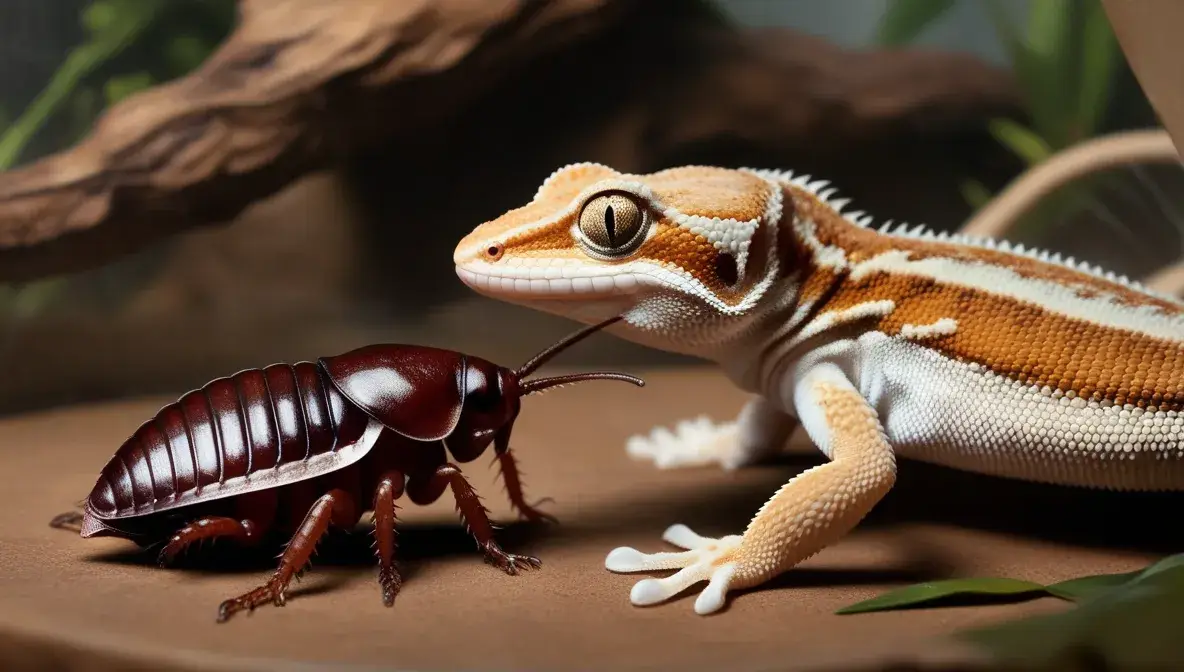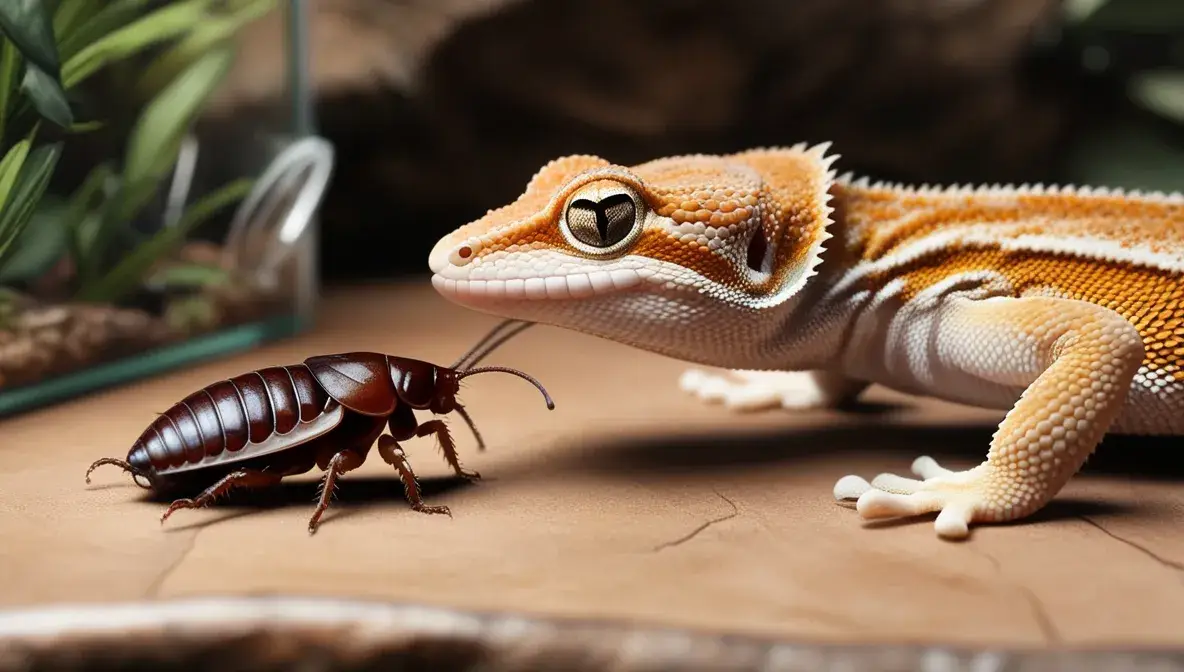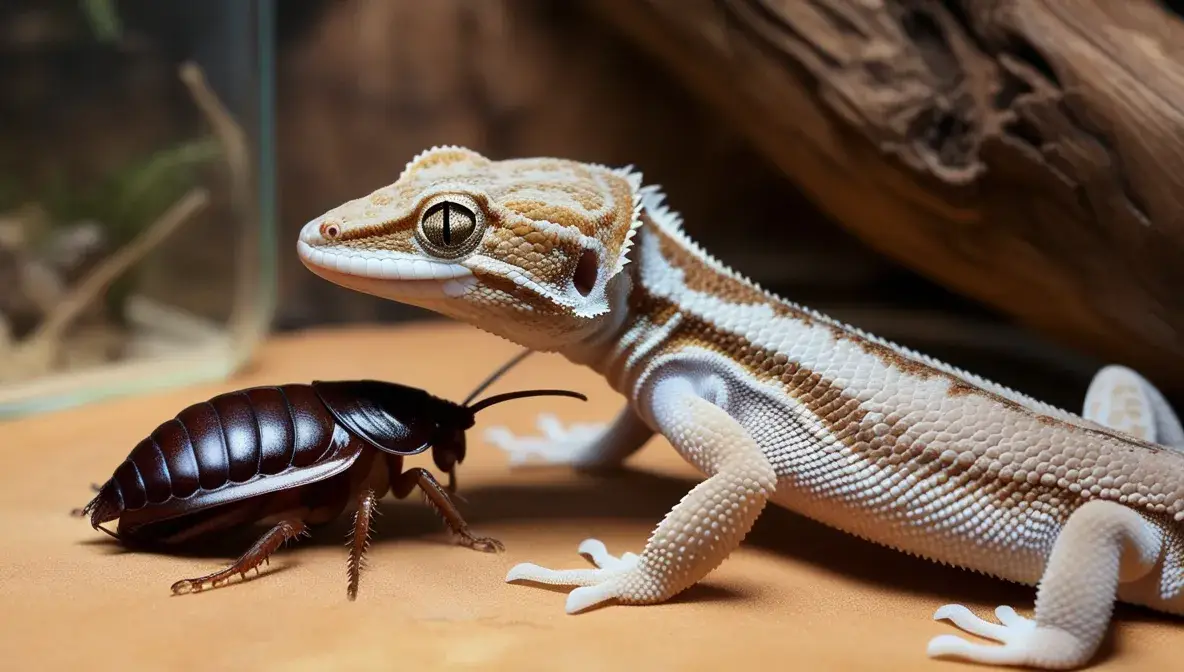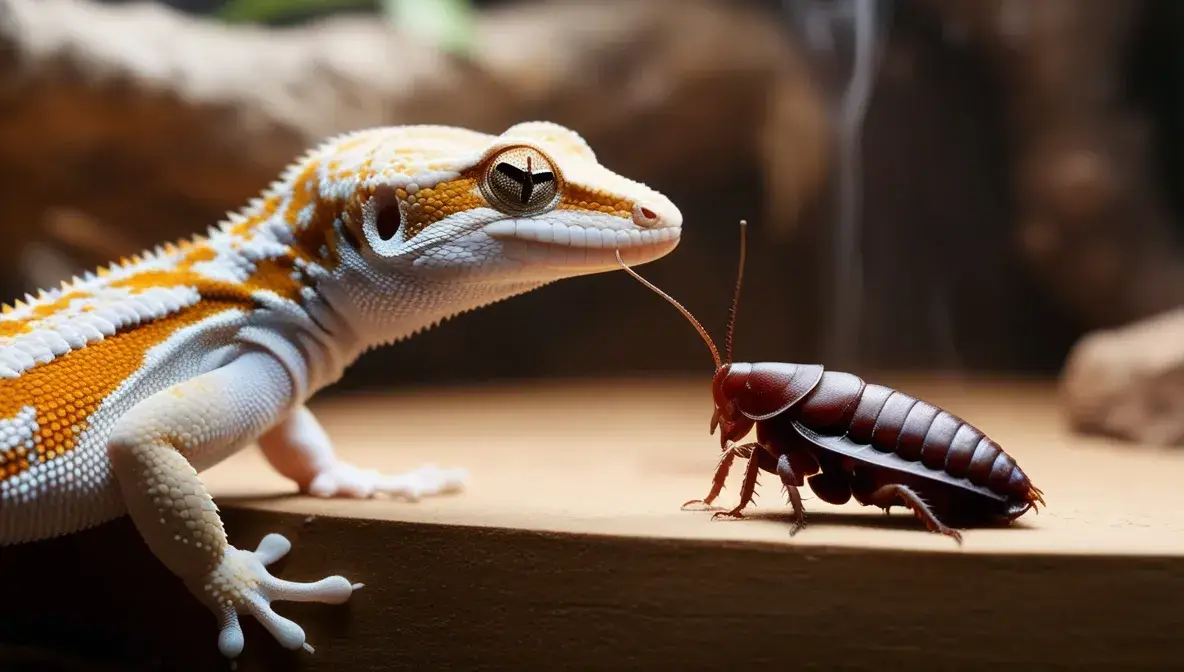If you’re a gecko owner, you’ve probably wondered, can geckos eat Dubia roaches? The short answer is yes—Dubia roaches are not only safe but also highly nutritious for geckos. But before you start feeding these insects to your scaly friend, there’s a lot more to know. From their nutritional benefits to how to safely introduce them into your gecko’s diet, this guide covers everything you need to know about feeding Dubia roaches to geckos.
Geckos are popular pets, known for their unique personalities and relatively low-maintenance care. However, their dietary needs are specific, and providing the right nutrition is crucial for their health and longevity. Dubia roaches have gained popularity as a feeder insect due to their high protein content, low fat, and ease of digestion. But are they the right choice for your gecko? Let’s dive in and explore this topic in detail.
Why Dubia Roaches Are a Great Choice for Geckos

Dubia roaches (Blaptica dubia) are a tropical species of cockroach native to Central and South America. Unlike common household roaches, Dubia roaches are clean, odorless, and easy to care for, making them an excellent choice for reptile owners. Here’s why they’re a standout option for geckos:
Nutritional Benefits of Dubia Roaches
Dubia roaches are packed with essential nutrients that geckos need to thrive. Here’s a breakdown of their nutritional profile:
- High Protein Content: Protein is vital for muscle development and overall growth in geckos. Dubia roaches contain about 23% protein, making them an excellent source.
- Low Fat: With only around 7% fat, Dubia roaches are a healthier alternative to other feeder insects like mealworms, which can be too fatty if overfed.
- Rich in Calcium: Calcium is crucial for geckos, especially for species like leopard geckos that are prone to metabolic bone disease. Dubia roaches have a better calcium-to-phosphorus ratio compared to crickets, reducing the need for additional supplementation.
- Easy to Digest: Their soft exoskeleton makes them easier for geckos to digest, reducing the risk of impaction.
Comparing Dubia Roaches to Other Feeder Insects
While crickets and mealworms are commonly fed to geckos, Dubia roaches offer several advantages:
- Longer Lifespan: Dubia roaches live longer than crickets, reducing the frequency of purchasing new feeder insects.
- Quiet and Odorless: Unlike crickets, Dubia roaches don’t chirp or produce unpleasant odors.
- Less Likely to Bite: Dubia roaches are less aggressive than crickets, minimizing the risk of injury to your gecko.
How to Safely Feed Dubia Roaches to Your Gecko

Feeding Dubia roaches to your gecko is straightforward, but there are a few important steps to ensure it’s done safely and effectively.
Step 1: Choose the Right Size
The size of the Dubia roach should match the size of your gecko’s head. Feeding roaches that are too large can cause choking or digestive issues. For juvenile geckos, opt for smaller nymphs, while adult geckos can handle larger roaches.
Step 2: Gut-Load the Roaches
Gut-loading involves feeding the roaches nutrient-rich foods 24-48 hours before offering them to your gecko. This process enhances their nutritional value. Some great gut-loading foods include:
- Leafy greens (e.g., kale, collard greens)
- Fruits (e.g., apples, oranges)
- Commercial gut-loading products
Step 3: Dust with Supplements
Even though Dubia roaches are nutritious, they may still require additional supplementation. Lightly dust the roaches with a calcium or vitamin D3 powder before feeding them to your gecko. This step is especially important for species like leopard geckos that need extra calcium.
Step 4: Monitor Your Gecko’s Reaction
Introduce Dubia roaches gradually and observe how your gecko reacts. Some geckos may be hesitant at first, especially if they’re used to other feeder insects. If your gecko refuses to eat, try wiggling the roach with feeding tongs to stimulate their hunting instinct.
Common Questions and Misconceptions About Dubia Roaches
Are Dubia Roaches Safe for All Gecko Species?
Yes, Dubia roaches are safe for most gecko species, including leopard geckos, crested geckos, and tokay geckos. However, always research your specific gecko species to ensure their dietary needs are met.
Can Dubia Roaches Cause Impaction?
Impaction occurs when a gecko ingests something it cannot digest, leading to a blockage in the digestive tract. While Dubia roaches have a softer exoskeleton than other insects, it’s still important to feed the appropriate size and ensure your gecko is hydrated.
Do Dubia Roaches Carry Diseases?
Dubia roaches are generally considered safe and are less likely to carry parasites compared to wild-caught insects. However, it’s crucial to purchase them from reputable breeders to minimize any risks.
Tips for Storing and Breeding Dubia Roaches

If you’re considering keeping Dubia roaches as a long-term feeder option, here are some tips for storing and breeding them:
Storage Tips
- Keep them in a well-ventilated container with a secure lid to prevent escapes.
- Maintain a temperature of 80-95°F (27-35°C) and humidity levels of 40-60%.
- Provide egg cartons or cardboard for hiding spaces.
Breeding Tips
- Start with a ratio of 1 male to 3-5 females for optimal breeding.
- Feed them a balanced diet of fruits, vegetables, and protein sources like dog food.
- Separate nymphs from adults to prevent overcrowding.
Final Thoughts: Are Dubia Roaches the Right Choice for Your Gecko?
Dubia roaches are an excellent feeder insect for geckos, offering a wealth of nutritional benefits and practical advantages over other options. They’re easy to digest, rich in protein and calcium, and simple to care for. By following the steps outlined in this guide, you can safely incorporate Dubia roaches into your gecko’s diet and contribute to their overall health and well-being.
If you’re new to feeding Dubia roaches, start slowly and monitor your gecko’s response. Over time, you’ll likely find that both you and your gecko appreciate the convenience and benefits of this feeder insect.
Call to Action
Have you tried feeding Dubia roaches to your gecko? Share your experiences in the comments below! If you found this guide helpful, check out our other posts on reptile care and nutrition for more tips and insights. Together, we can ensure our scaly friends live happy, healthy lives! Drguidez.

Mark Manson is an expert blogger specializing in Dubia Roaches. He shares practical care tips, breeding insights, and feeding advice to help enthusiasts and reptile owners thrive.

